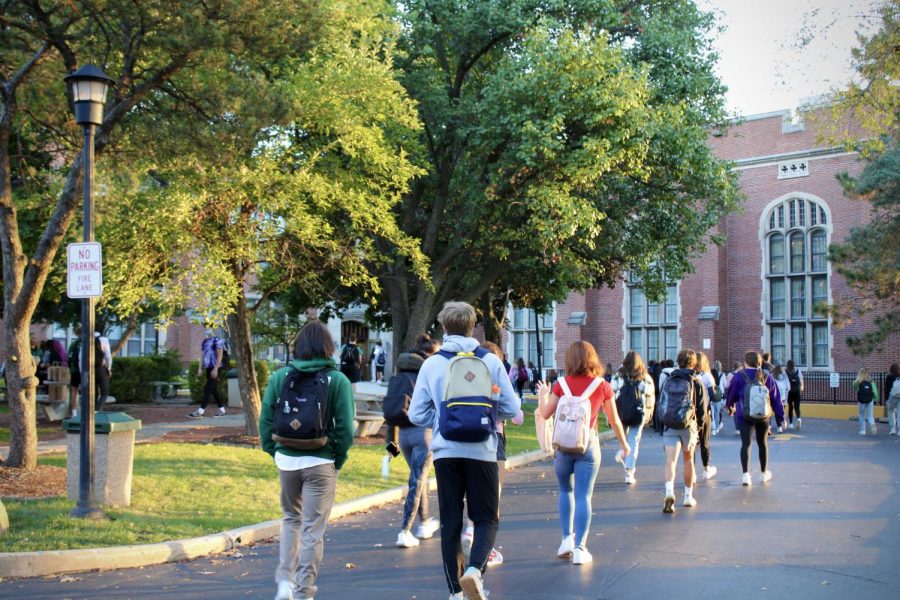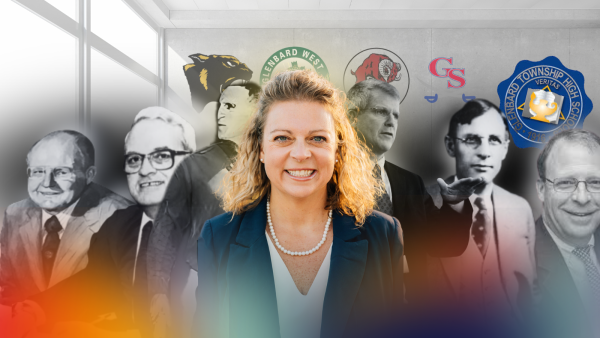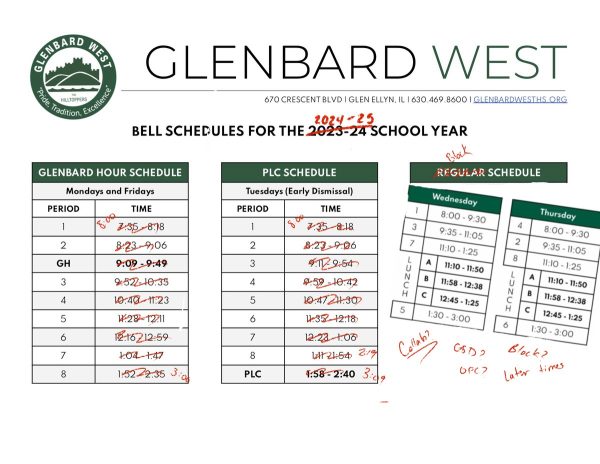West Staff on Adjusting to In-Person Learning
The first day of school this year was long awaited. When the day finally arrived, Circle Drive was filled with students, Junior and Senior Mentors cheered on freshmen, and students entering by the buses reluctantly remembered that they had to climb the hill. Things were starting to look normal – until third period: The lights suddenly went out, and everyone had to go home.
Yet, the rough start this year was not nearly as difficult as the rocky experience last year. Throughout last year, Glenbard West juggled hybrid, remote, and in-person learning. Mr. Neberz, one of Glenbard West’s counselors,”[felt] the constant uncertainty of school” due to the changing of schedules throughout the year. Going back and forth between online and in-person learning definitely created a disconnect. English teacher Mrs. Wiersum felt “how impersonal it could be” without seeing her students’ faces. Likewise, math teacher Mrs. Shanahan thought it was difficult “to not have in person feedback,” such as body language, to tell if students were understanding concepts. Particularly as a math teacher, Mrs. Shanahan feels that she “[has] to be able to see what the students are writing to be helpful.” Both Zoom and social distancing made it difficult to look at students’ work.
Despite the challenges of last year, there were also benefits. Mr. Neberz reflected that last year truly displayed the resilience of the Glenbard West community. He also believes that using computers so often has made us more “adept” and “efficient” with technology. From a teaching standpoint, Mrs. Wiersum was grateful because “[she] [had] way more time to conference with students” over Zoom about their writing.
Now that classes are in-person, there is still some adjusting to do. Staff and students alike are starting to get back into their routines. Mr. Neberz thinks that students are currently trying to “find their balance” between extracurriculars and academics, and advises everyone that it will “[take] some effort and time to get there.” Mrs. Shanahan mentioned that teachers have to figure out when to “push students ahead” and when to “pull back” when it comes to learning new content, since there were various content gaps last year. On a lighter note, Mrs.Wiersum has noticed that there is “no readiness to handle things like paper.” When she gives her students handouts, they often ask her what they are supposed to do with it after class.
For anyone who needs help adjusting to an in-person school routine, Mr. Neberz recommends “[trying] to find models that are working for other people.” This includes asking friends and classmates what has worked for them. Also, reach out to counselors, social workers, and teachers. Most importantly, Mr. Neberz emphasized that being successful is about “being able to take some risks” when struggling both academically and socially. This could be “starting a conversation,” or asking a question in class.
Returning to school may be stressful, but Hilltopper staff and students have proved that they can persevere. Overall, it is good to keep a positive mindset about being back. Mrs. Shanahan and all of Glenbard West probably agree that the best thing about returning is this: “how much we laugh at school.”








